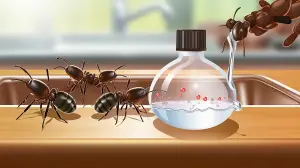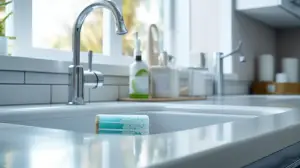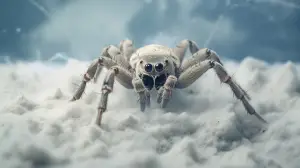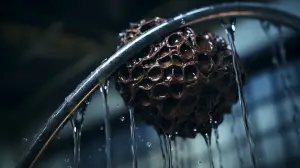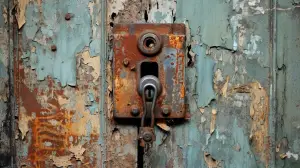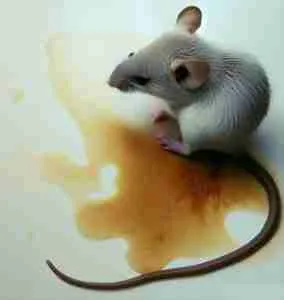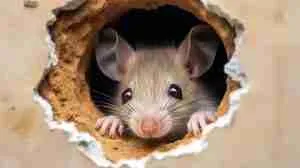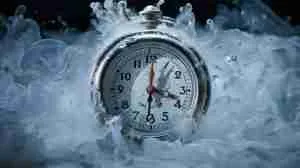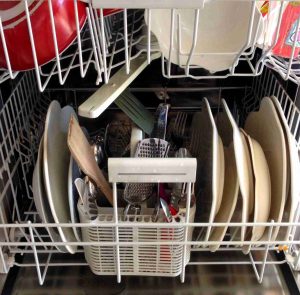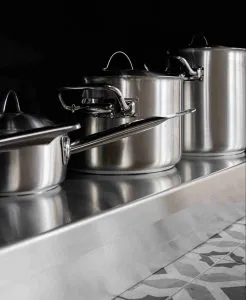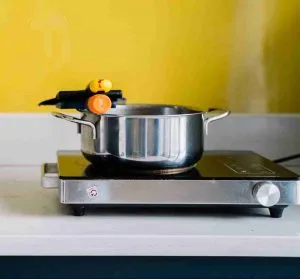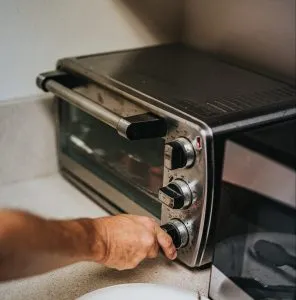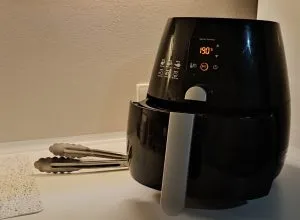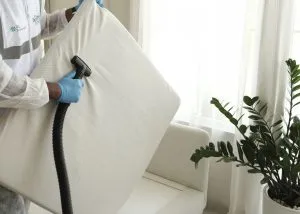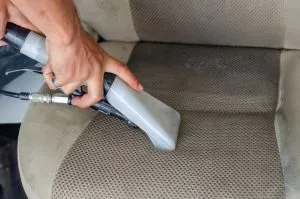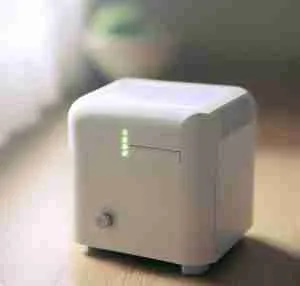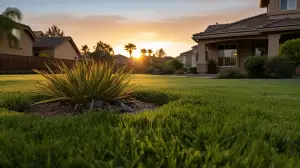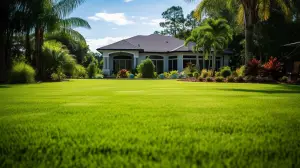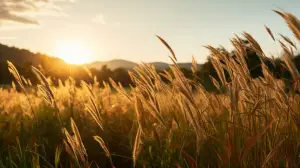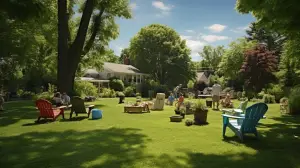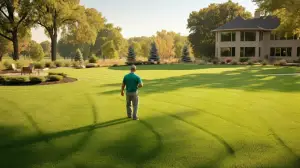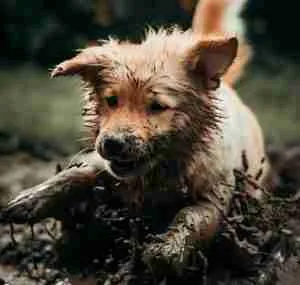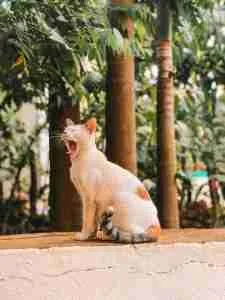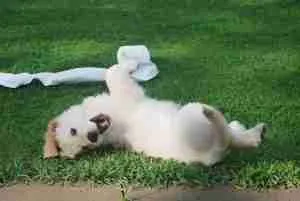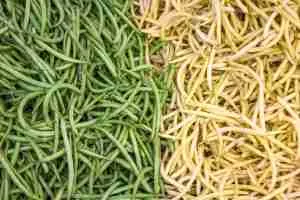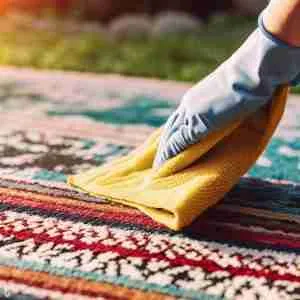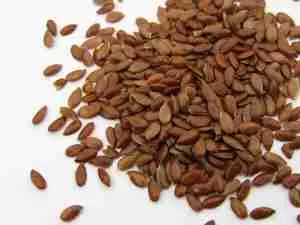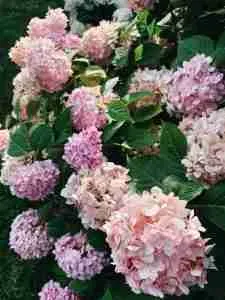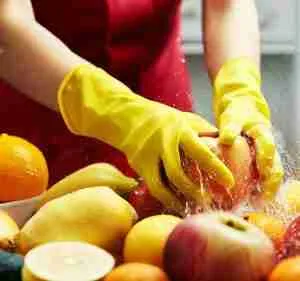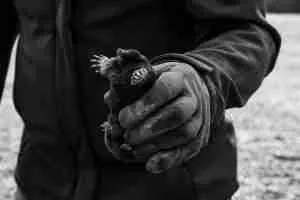Contents
ToggleWhat Causes Dog Urine to Damage Grass?

Dog urine contains high levels of nitrogen, which, in moderation, can actually act as a natural fertilizer for your grass. However, when the nitrogen concentration is too high, it can “burn” the grass, causing those dreaded yellow spots. The high acidity of dog urine also contributes to this issue, as it can alter the soil’s pH and make it difficult for grass to thrive.
Do Male or Female Dogs Cause More Grass Damage?

The debate over whether male or female dogs cause more grass damage is a common one among pet owners. While both genders have urine that can damage grass, female dogs tend to squat when they urinate, depositing a larger volume in one spot, which increases the chances of lawn damage.
Male dogs, on the other hand, often lift their leg and distribute urine across a wider area, potentially causing less damage. Nonetheless, it’s essential to note that individual dogs may have more potent urine, regardless of their gender.
Factors Contributing to Lawn Damage from Dog Urine
Several factors contribute to the severity of lawn damage from dog urine. These include:
- Dog’s diet: A dog’s diet plays a crucial role in determining the concentration of nitrogen and acidity in their urine. Feeding your dog a high-quality, balanced diet can help maintain a healthy urine pH and minimize lawn damage.
- Grass species: Some grass species are more resistant to urine damage than others. Grasses like fescue, perennial ryegrass, and Kentucky bluegrass have been found to be more tolerant of dog urine.
- Soil health: Healthy soil is better equipped to handle dog urine without suffering significant damage. Regular lawn maintenance practices, such as aeration, fertilization, and watering, can help maintain soil health and reduce urine damage.
Personal Encounters with Grass Destruction due to Dog Pee

Now that we understand the factors that contribute to grass damage from dog urine, let’s take a storytelling approach and discuss some real-life examples of how people have tackled this issue.
Sarah’s Story
Sarah, a dog owner and gardening enthusiast, was frustrated with the yellow spots on her lawn caused by her beloved Golden Retriever, Daisy. She decided to take matters into her own hands and find a natural solution to protect her grass.
First, she researched and switched to a urine-resistant grass species. She chose a mix of fescue and perennial ryegrass, which were known for their resilience. She also consulted her veterinarian for dietary recommendations and added natural supplements to Daisy’s diet to balance the pH of her urine.
Next, Sarah focused on improving her lawn care practices. She began aerating her lawn regularly, applied natural, slow-release fertilizer, and watered her lawn deeply and infrequently to encourage deep root growth.
Finally, she created a designated dog potty area in her yard. She used pea gravel and trained Daisy to use this area for urination. This approach not only reduced damage to her main lawn but also made clean-up easier.
With these changes, Sarah noticed a significant improvement in the appearance and health of her lawn. The yellow spots began to fade, and her grass started to regain its vibrant green color. Sarah’s experience is a testament to the effectiveness of natural solutions in preventing dog urine damage to the grass.
Mike’s Story
Mike, a proud father of two Labrador Retrievers, faced a similar problem with his backyard lawn. He was determined to find a natural, dog-friendly way to restore the beauty of his lawn while keeping his furry companions happy and healthy.
Mike decided to tackle the issue by focusing on diluting the concentration of his dogs’ urine. He encouraged them to drink more water, which not only helped reduce the potency of their urine but also kept them well-hydrated.
He also made it a habit to promptly pour water on the spot where his dogs urinated. This simple action helped dilute the urine and minimize its harmful effects on the grass. Additionally, Mike trained his dogs to urinate in specific areas of his yard, making it easier for him to manage and treat the affected spots.
To further protect his lawn, Mike used natural lawn repair products. He applied a mixture of soil, grass seed, and organic matter to the damaged areas and used dog-safe products to neutralize urine odors and promote grass growth.
Mike’s efforts paid off, as his once yellow-spotted lawn gradually transformed into a lush, green oasis. His story demonstrates the power of persistence and the benefits of adopting natural methods to combat dog urine damage on grass.
How to Stop Dog Urine from Killing Grass Naturally?

Now that we’ve delved into the causes and factors that contribute to lawn damage from dog urine, it’s time to explore the specific steps you can take to prevent and mitigate this issue in a natural and eco-friendly manner.
By understanding the underlying reasons for grass damage due to dog urine, you can make informed decisions and implement effective strategies to maintain a healthy, vibrant lawn that both you and your furry friend can enjoy. With a combination of prevention measures, proper lawn care practices, and natural remedies, you can successfully tackle this common challenge faced by dog owners and lawn enthusiasts alike.
1. Prevention – Create a designated dog potty area
One of the most effective strategies to protect your lawn from dog urine damage is by establishing a designated potty area for your furry companion. This approach not only preserves the main lawn area but also simplifies clean-up and maintenance tasks.
Select a location away from the main lawn area
When choosing a spot for the potty area, select a location that’s separate from your primary lawn area.
Opt for a corner, a less frequented side of your yard, or a location with some privacy to make it more appealing for your dog.
Consider accessibility and convenience when selecting the spot, as it should be easy for both you and your dog to reach.
Use materials like mulch, gravel, or artificial turf for the potty area
When constructing the designated area, cover it with materials such as mulch, gravel, or artificial turf.
These materials are not only easy to clean and low-maintenance, but they also won’t be damaged by dog urine. If you choose to mulch, opt for an organic, non-toxic variety that’s safe for your dog.
Alternatively, you can use pea gravel, which is comfortable for your dog to walk on and doesn’t retain urine odor. Artificial turf designed specifically for pet use is another excellent option, as it closely mimics the appearance of natural grass and can be easily hosed down to remove urine.
Train your dog to use the designated area for urination
Training your dog to consistently use the designated potty area is crucial for this prevention method to be effective.
Start by leading your dog to the designated area during their regular bathroom breaks.
Use a consistent command, such as “Go potty,” and reward them with praise or treats when they successfully urinate in the designated area.
Be patient and persistent during the training process, as it may take some time for your dog to develop a strong association between the designated area and bathroom breaks. Ensure that all family members follow the same training routine to maintain consistency.
Clean and maintain the designated area regularly
Regular cleaning and maintenance of the potty area are essential to keep it sanitary and odor-free.
Remove solid waste daily using a scooper or plastic bags, and dispose of it according to your local waste regulations.
Rinse the area with water frequently to dilute any lingering urine and minimize odors.
If you’re using mulch or gravel, replace it periodically to maintain a clean and hygienic environment.
For artificial turf, hose it down regularly and use a pet-safe cleaner to remove any residual urine and prevent odor buildup.
 | 100% Natural Cedar Shavings | Mulch | CHECK PRICE |
 | Cedar Wood Mulch Chips Shavings for Garden | CHECK PRICE |
 | 7 lb Natural River Rocks for Garden | CHECK PRICE |
 | 5lbs White River Rocks, 1-2 Inch Natural Pebbles | CHECK PRICE |
 | XLX TURF Realistic Artificial Grass Rug Indoor Outdoor - 3ft x 5ft | CHECK PRICE |
 | Artificial Grass - Mutifunction Dog Pee Grass | CHECK PRICE |
 | MXF Pooper Scooper Swivel Bin & Rake Kit with 20 Waste Bags | CHECK PRICE |
 | PPOGOO Non-Breakable Pet Pooper Scooper for Dogs and Cats | CHECK PRICE |
2. Water your lawn

Proper watering practices can significantly reduce the impact of dog urine on your grass. By keeping the soil hydrated and healthy, you can minimize the chances of urine burns and promote strong grass growth.
Water deeply and infrequently
Water your lawn deeply but infrequently to encourage deep root growth, which can help grass withstand urine damage.
Aim for about 1 inch of water per week, either from rainfall or irrigation. Watering in the early morning is ideal, as it allows the grass to dry before evening, reducing the risk of disease.
For more detailed information on effective watering practices, particularly for newly seeded lawns, check out this comprehensive guide on how often to water new grass seed.
Dilute urine spots immediately
When you see your dog urinate on the grass, act quickly to pour water on the spot.
This will help dilute the urine, reducing its harmful effects on the grass. Keep a watering can or a hose nearby for easy access and prompt action.
By following these steps, you can effectively stop dog urine from killing your grass naturally. Prevention, training, and proper lawn care practices can make all the difference in maintaining a healthy, green lawn that both you and your dog can enjoy.
 | Garden Sprinkler - 360 Rotating, Adjustable Large Area | CHECK PRICE |
 | Eden 94113 Lawn & Garden Essential Oscillating Water Sprinkler For Yard W/Quick Connect Starter Set | CHECK PRICE |
 | Melnor 65003-AMZ MiniMax Turbo Oscillating Sprinkler with QuickConnect Product Adapter Watering Set | CHECK PRICE |
 | Pulsating Impact Sprinkler, 80-5800 SQ.FT Adjustable Coverage | CHECK PRICE |
3. Water your dog
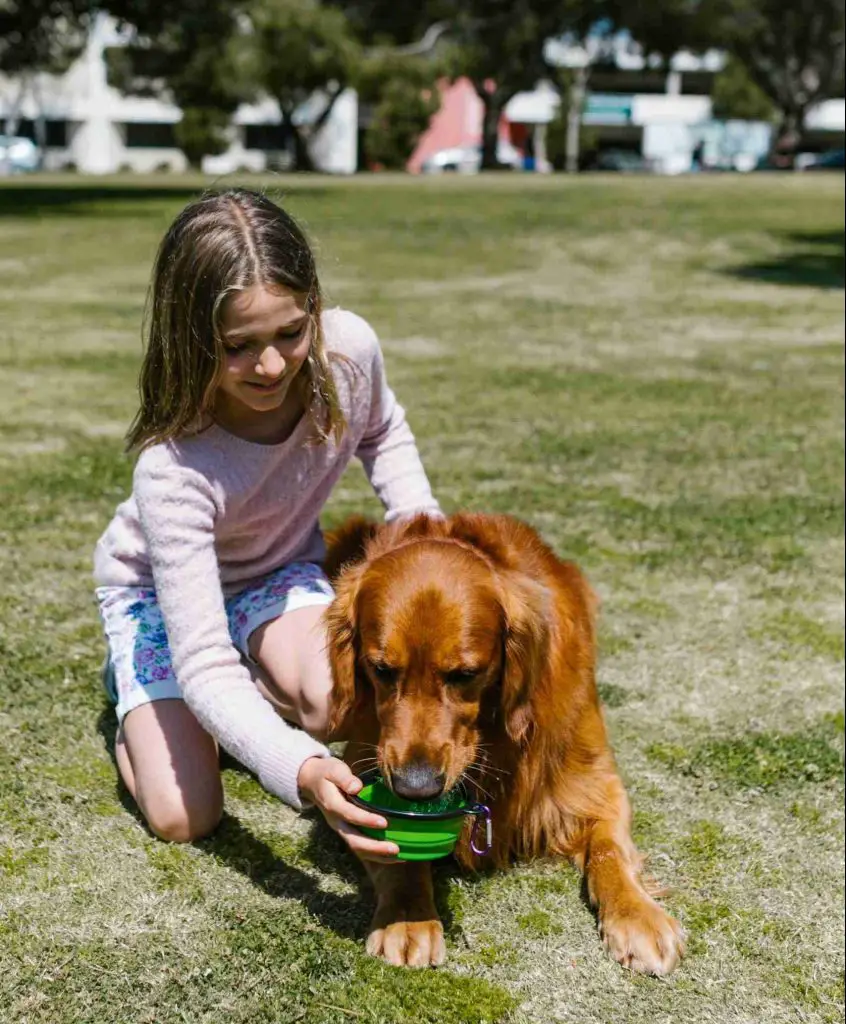
One simple yet effective way to reduce the impact of dog urine on your lawn is by encouraging your dog to drink more water. A well-hydrated dog will produce less concentrated urine, which in turn will be less harmful to your grass.
Encourage your dog to drink more water, so its urine is less concentrated
Make sure your dog has constant access to fresh, clean water.
You can place multiple water bowls around your home and yard to encourage more frequent drinking.
Additionally, consider adding water to your dog’s food, especially if they eat dry kibble, to increase their overall water intake.
By keeping your dog well-hydrated, you can help dilute its urine and minimize its harmful effects on your lawn.
 | Hubulk Pet Dog Bowls 2 Stainless Steel Dog Bowl with No Spill Non-Skid Silicone Mat | CHECK PRICE |
 | Deep Stainless Steel Anti-Slip Dog Bowls, Set of 2 | CHECK PRICE |
4. Modify the dog’s diet

Another approach to preventing dog urine from damaging your grass is by adjusting your dog’s diet. Certain dietary changes can help balance the pH of your dog’s urine, making it less harmful to your lawn.
Consult a veterinarian for dietary recommendations
Before making any significant changes to your dog’s diet, consult a veterinarian for guidance.
They can recommend the most appropriate diet and nutritional supplements for your dog based on its age, breed, size, and overall health.
Add natural supplements to your dog’s diet to balance the pH of its urine
There are natural supplements available that can help balance the pH of your dog’s urine, reducing its harmful impact on your lawn.
Some examples include cranberry supplements and apple cider vinegar. However, it is essential to consult your veterinarian before introducing any new supplements into your dog’s diet.
Avoid giving your dog human food that might exacerbate the issue
Certain human foods can cause an imbalance in your dog’s urine pH and may exacerbate the damage to your lawn.
Foods high in protein, for example, can lead to more acidic urine.
Limit your dog’s consumption of human food and ensure they are eating a balanced, species-appropriate diet to minimize the risk of lawn damage due to dog urine.
5. Reduce nitrogen in dog urine

High levels of nitrogen in dog urine can cause significant damage to your lawn. By reducing the nitrogen content in your dog’s urine, you can help protect your grass from unsightly yellow spots and dead patches.
Monitor your dog’s protein intake
One way to reduce the nitrogen in your dog’s urine is by monitoring their protein intake.
While dogs need protein for a healthy diet, excessive protein consumption can lead to increased nitrogen levels in their urine.
Consult your veterinarian to determine the appropriate protein level for your dog’s specific needs, and choose a dog food that provides the right balance.
Encourage frequent bathroom breaks
Another way to reduce the concentration of nitrogen in your dog’s urine is by encouraging frequent bathroom breaks.
The more often your dog urinates, the less concentrated their urine will be, leading to less damage to your lawn.
Regular walks and playtime in the yard can help your dog stay active and promote more frequent urination.
6. Lawn saver supplements and grass species

There are several lawn-saving supplements and grass species that can help minimize the damage caused by dog urine. These options can help you maintain a healthy, green lawn, even with a dog that loves to play and urinate in the yard.
Research grass species that are more resistant to urine damage
Some grass species are more resistant to dog urine damage than others.
For example, perennial ryegrass and fescue grass are known to be more tolerant of urine than Kentucky bluegrass or Bermuda grass.
Research different grass species and their resistance to urine damage to find the best option for your lawn.
Garden lime
Applying garden lime to your lawn can help neutralize the acidity caused by dog urine, reducing its harmful effects on your grass.
Garden lime, which is made from ground limestone, raises the pH of the soil, making it less acidic.
To use garden lime effectively, follow the manufacturer’s instructions, and apply it to the affected areas of your lawn after diluting dog urine with water.
Keep in mind that garden lime should be used judiciously, as over-application can lead to other issues such as nutrient imbalances in the soil.
 | Scotts Turf Builder Lawn Food - Fertilizer for All Grass Types | CHECK PRICE |
 | VIVOSUN 1.35-Gallon Pump Pressure Sprayer | CHECK PRICE |
7. Improve lawn care practices

Proper lawn care practices can help your grass become more resilient and better able to withstand the damaging effects of dog urine. By maintaining a healthy lawn, you can minimize the impact of urine on your grass and keep your yard looking green and lush.
Aerate the lawn regularly to improve soil permeability
Aerating your lawn regularly can help improve soil permeability, allowing water, air, and nutrients to reach the grass roots more effectively.
This process involves removing small plugs of soil from the lawn to create channels for better absorption.
Aerating your lawn at least once a year, preferably in the fall or spring, can lead to stronger, more resilient grass.
Apply a natural, slow-release fertilizer to promote grass health
Using a natural, slow-release fertilizer can help promote grass health and make your lawn more resistant to damage caused by dog urine.
Choose an organic fertilizer with a balanced nutrient profile, and follow the manufacturer’s instructions for proper application.
Fertilizing your lawn in the spring and fall can support robust grass growth and improve its overall resilience.
Water the lawn deeply and infrequently to encourage deep root growth
As previously mentioned, watering your lawn deeply and infrequently encourages deep root growth, making the grass more resilient to urine damage.
Aim for about 1 inch of water per week, either from rainfall or irrigation. Watering in the early morning is ideal, as it allows the grass to dry before evening, reducing the risk of disease.
Mow the lawn at the proper height to promote healthy grass growth
Mowing your lawn at the appropriate height can also help promote healthy grass growth and improve its resistance to dog urine damage.
Different grass species have different ideal mowing heights, so research the specific needs of your lawn to ensure optimal growth.
In general, avoid cutting more than one-third of the grass height at a time, as this can stress the grass and make it more susceptible to damage. Regularly sharpen your mower blades to ensure a clean cut and reduce the risk of disease.
To make mowing your lawn easier and more efficient, consider investing in a high-quality lawn mower, such as a battery-powered self-propelled lawnmower. These mowers are environmentally friendly, easy to use, and can help you maintain the proper height for your grass, ultimately contributing to a healthier, more resilient lawn that can better withstand the effects of dog urine.
8. How to Naturally Neutralize Dog Urine on Grass

If dog urine has already damaged your lawn, there are natural ways to neutralize its effects and restore your grass to a healthy state. By using environmentally friendly and dog-safe products, you can address the issue without causing harm to your pet or the environment.
Immediately pour water on the spot where the dog urinated
As soon as you notice your dog urinating on the grass, act quickly to dilute the urine with water.
This will help minimize the nitrogen concentration and lessen its damaging impact on the grass.
Use a garden hose or a watering can to thoroughly saturate the area with water, helping to prevent the formation of yellow spots or dead patches.
Testing your soil
Understanding your soil’s pH and nutrient levels can help you determine the best course of action to neutralize dog urine damage.
Purchase a soil test kit and follow the instructions to assess the state of your lawn.
Based on the results, you can make informed decisions about the type of amendments or treatments needed to restore your grass to health.
Apply a mixture of soil, grass seed, and organic matter to damaged areas
To repair damaged areas of your lawn, apply a mixture of soil, grass seed, and organic matter, such as compost or well-rotted manure.
This combination will provide the necessary nutrients for new grass growth while also improving the overall soil structure.
Spread the mixture evenly over the damaged areas, water well, and monitor the progress of the new grass as it germinates and grows.
Use natural, dog-safe products to neutralize urine odors and promote grass growth
There are several natural, dog-safe products available that can help neutralize urine odors and promote grass growth.
Look for products that contain beneficial bacteria, enzymes, or other natural ingredients that break down urine compounds and support healthy grass growth. Always follow the manufacturer’s instructions for proper application and usage.
Monitor the lawn’s progress and reapply products as needed
Keep a close eye on your lawn’s progress as you apply natural remedies to neutralize dog urine damage.
Regularly assess the state of your grass and reapply products as needed to ensure continued improvement.
By staying diligent and committed to your lawn’s health, you can restore your grass to its original, vibrant state and minimize the impact of dog urine on your lawn.
 | 4-in-1 Soil Moisture Meter ,Digital Plant Temperature/Soil Moisture/PH Meter/Sunlight Intensity/Environment Humidity | CHECK PRICE |
 | Kensizer Soil Tester, Soil Moisture/pH Meter | CHECK PRICE |
 | Soil Moisture Meter,4-in-1 Soil Ph Meter, Soil Tester for Moisture, Light | CHECK PRICE |
9. Train Your Dog to Use Dog Rocks or Similar Products

One bonus idea that can help reduce the damage caused by dog urine on your lawn is to train your dog to use Dog Rocks or similar products. These products are designed to be placed in your dog’s water bowl and can help filter out impurities, such as nitrates and ammonia, which contribute to the harmful effects of dog urine on grass.
Introduce Dog Rocks to your dog’s water bowl
Start by adding Dog Rocks or a similar product to your dog’s water bowl, following the manufacturer’s instructions for proper usage. These products are typically made from naturally occurring minerals and are safe for your pet to use.
Observe your dog’s reaction
Keep an eye on your dog’s reaction to the Dog Rocks or similar products.
Some dogs may be hesitant to drink water with the rocks at first, so be patient and allow your pet to get used to their new water source. It’s essential to ensure that your dog continues to drink an adequate amount of water while using these products.
Watch changes in your lawn’s health
As your dog consumes water treated with Dog Rocks or a similar product, you may notice a reduction in the damage caused by their urine on your lawn. Continue to monitor your lawn’s health and make adjustments to your lawn care routine as needed.
Maintain the use of Dog Rocks or similar products
If you find that Dog Rocks or similar products are effective in reducing urine damage to your lawn, continue using them as part of your regular lawn care routine. Replace the rocks as recommended by the manufacturer to maintain their effectiveness.
 | (2 Pack) Dog Rocks Prevent Grass Burn Marks, 4 Month Supply | CHECK PRICE |
 | Peterals 200 Grams - Natural Mineral Rocks to Prevent Lawn Grass Burn | CHECK PRICE |
Will Baking Soda Neutralize Dog Urine on Grass?
Baking soda is often suggested as a home remedy for neutralizing dog urine on grass.
The idea behind using baking soda is that it can help raise the pH level of the soil, counteracting the acidity of dog urine.
However, the effectiveness of baking soda in this context is debatable, and there’s a risk of harming your lawn by changing the soil’s pH too drastically.
Instead, it’s better to focus on the prevention methods and natural treatments discussed earlier in this article.
Does Tomato Juice Stop Dog Pee from Killing Grass?
Tomato juice has been proposed as a remedy to stop dog pee from killing grass because of its supposed ability to neutralize the high nitrogen content in dog urine.
However, there is little scientific evidence to support this claim, and tomato juice may not be effective in preventing grass damage caused by dog urine.
It’s also important to consider the potential risks of giving your dog tomato juice, such as gastrointestinal upset. As with baking soda, it’s best to rely on proven methods and natural treatments for protecting your lawn from dog urine damage.
Does Vinegar Stop Dog Pee from Killing Grass?
Vinegar is another home remedy that is sometimes suggested for preventing dog pee from killing grass.
The theory behind using vinegar is that it can help neutralize the high nitrogen content in dog urine, similar to the claims made about tomato juice.
However, there is limited evidence supporting the effectiveness of vinegar for this purpose. In fact, vinegar is an acidic substance that can further lower the pH of the soil, potentially causing even more damage to your grass.
Instead of using vinegar, again, focus on the practical and natural solutions outlined in this article to keep your lawn healthy and free from dog urine damage.
Conclusion
In this article, we’ve discussed various natural strategies to prevent and mitigate the damage caused by dog urine on grass.
These include creating a designated potty area, ensuring proper hydration for your dog, modifying your dog’s diet, and implementing good lawn care practices.
We’ve also explored the reasons behind grass damage due to dog urine and debunked some common home remedies that may not be effective.
By understanding the factors contributing to lawn damage and implementing the suggested steps, you can maintain a healthy, lush lawn while keeping your four-legged friend happy and comfortable.
FAQ:
How do you neutralize dog urine so it doesn’t kill grass?
To neutralize dog urine on grass, act quickly to dilute the urine with water. Encourage your dog to drink more water to reduce urine concentration, and implement proper lawn care practices to maintain a healthy, resilient lawn.
How do I stop my dog’s urine from burning my grass?
Stop dog urine from burning grass by creating a designated potty area, promoting deep root growth through proper watering, and ensuring your dog stays well-hydrated. Modify your dog’s diet as needed and consider using natural remedies to neutralize urine effects on grass.
What home remedy neutralizes dog urine on grass?
A simple home remedy for neutralizing dog urine on grass is to immediately pour water on the affected spot to dilute the urine. However, prevention methods and proper lawn care practices are more effective in addressing this issue long-term.
Will vinegar neutralize dog urine on grass?
Vinegar is not recommended for neutralizing dog urine on grass, as it’s an acidic substance that can further lower the soil pH and potentially cause more damage. Focus on proven methods and natural treatments to protect your lawn from dog urine damage.
Additional Resources and Solutions
These real-life examples showcase various ways to naturally prevent dog urine from killing grass. However, you may also be interested in other lawn care topics to keep your yard in tip-top shape. Check out these informative articles for more guidance:
- How to Get Grass Stains Out of Jeans: Learn how to remove grass stains from your favorite pair of jeans using simple household items and effective techniques.
- How Much Grass Seed Do I Need: This guide will help you determine the right amount of grass seed required for your lawn based on its size and condition.
- Can You Use Car Oil in a Lawn Mower?: Learn whether it’s safe to use car oil in your lawnmower and what alternatives are available to maintain your mower’s performance.



